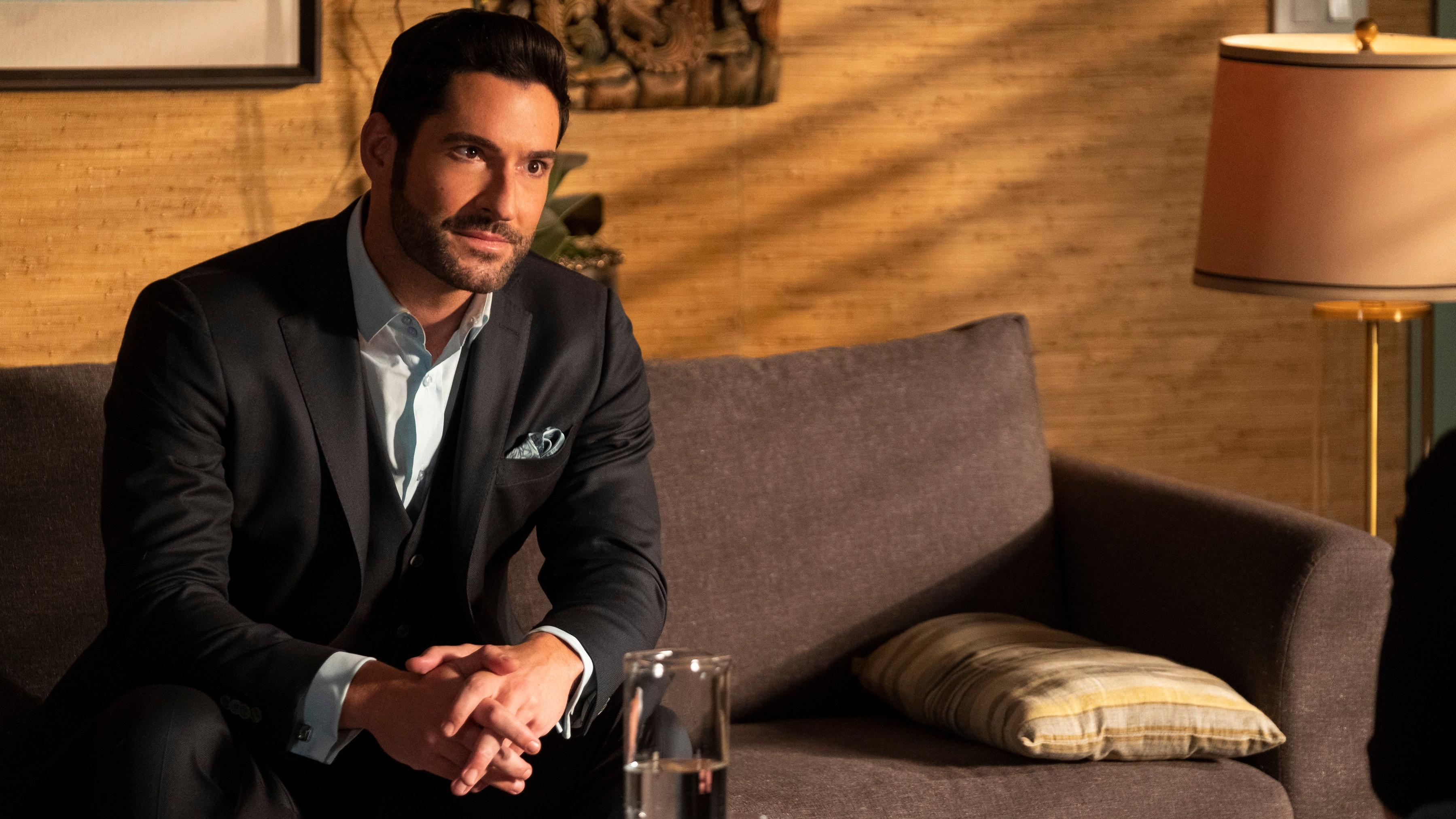So, it’s encouraging that the sixth (what an appropriate number) and final season would start with Lucifer questioning that choice, or, more precisely, putting it off for another day. It’s a nice callback to how the series began, when Lucifer abandoned his duties as Hell’s keeper to run a Los Angeles nightclub, Lux. Through Chloe, he was called to a higher purpose, tracking down earthly sinners, but Chloe is no longer a cop and also lacks direction. Showrunners Ildy Modrovich and Joe Henderson understand that Lucifer as God isn’t as interesting as Lucifer and Chloe, finally together as a couple and trying to figure out the rest of their lives.
This season elegantly answers how “quintessential Deckerstar” would function once the sexual tension is removed and the will-they/won’t-they finally answered. Lucifer and Chloe are great together, and not just as lovers (although there is a lot of sex) but as friends and partners. Chloe doesn’t become less badass because she’s happily in love, nor do idiotic plots and contrivances artificially keep them apart (too often the case during the Fox run). They have a realistic, mature relationship where each party is aware of the other’s strengths and weaknesses, and helps them become better people. The fact that one of them is a supernatural being never gets in the way. The course of their love doesn’t always run smooth, of course, and this season’s “antagonist” strikes at the heart of Chloe and Lucifer’s relationship.
While Michael (also Tom Ellis) was a more traditional villain, literally an “evil” twin, the sixth season introduces the mysterious angel, Rory (Brianna Hildebrand), who, as the trailers have already revealed, wants nothing less than Lucifer’s destruction. She barely knows him and hates him all the more for it. Rory connects with Dan (Kevin Alejandro), who’s been stuck in Hell for millennia. Death is obviously not the end of the line on a series where both Heaven and Hell are travel destinations ,but Dan’s return is still a pleasant surprise. Even when he was Lucifer’s douchey foil, you couldn’t help but like him and his unwavering devotion to pudding cups.
The second series episode, “A Good Day to Die,” introduced us to Lucifer’s compelling take on damnation: Souls are trapped in an eternal torturous loop fueled by their own guilt. This hell isn’t other people; it’s us. In one of the best episodes from the third season, “Off the Record,” Lucifer chillingly reveals that Hell has no locked doors. Everyone’s free to leave, but their own guilt prevents them. This led to much debate about how actual psychopaths and/or members of Congress might feel no guilt, but Lucifer contends that even the worst of us, deep down, feels regret. However, if that’s true, then isn’t there also potential for redemption?
You wouldn’t think of the devil as a saver of lost souls, but last season, Lucifer helped recurring goon Lee a.k.a. “Mr. Said Out Bitch” (Jeremiah Wayne Birkett) come to terms with his mistakes and escape his own hell loop. Both damned souls were reunited in Heaven during “A Chance At A Happy Ending,” and Modrovich and Henderson seize on this thread to tie up the entire series.
The first trailer for the adaptation of Neil Gaiman’s Lucifer stories felt smug and slick, a not-very-subtle rehash of such procedural dramas as Bones and Castle. The devil even goes to therapy, which was just so LA, but thanks to Ellis and Rachel Harris, who plays Dr. Linda Martin, Lucifer’s therapy sessions became the emotional backbone of the series. That’s reinforced even more as the procedural aspect is downplayed in favor of intimate scenes where characters share their feelings instead of just advancing the plot.
Sometimes a cult series gaining a new life isn’t always ideal. Netflix revived Arrested Development, which Fox also canceled after three seasons, but as the title implies, there’s only so far you can take characters who are irredeemably awful. The point was to laugh at their self-inflicted misery. Lucifer’s damaged characters were all people we could root for, and it stings a little to finally say goodbye to Linda, Ella (Aimee Garcia), Amenadiel (D.B. Woodside), and Maze (Lesley-Ann Brandt), the latter of whom still deserves her demon bounty hunter spin-off. Everyone’s story is wrapped up in a manner that will generate big, messy tears unless you’re dead inside.
Lucifer escaped Hell because he hated his job, which he considered a curse, and viewed Earth as nothing more than his playground. While he eagerly partied with an assortment of well-toned humans, he originally didn’t think much of us as a species (the job will do that to you). But throughout the series, he grew to respect humanity, even care for us. It’s to Lucifer’s credit that we could ever imagine the devil as our friend. What’s most impressive about this final season is how it redeems every misstep along the way (this writer’s still steaming over Maze’s pointless heel turn in season three). That’s perhaps fitting for the show’s ultimate premise, that we are never just our worst moments, nor are we exclusively our best.










































